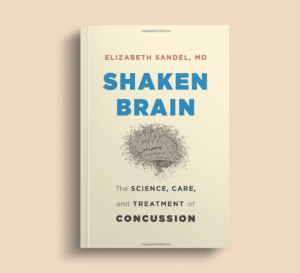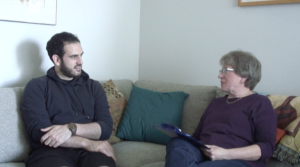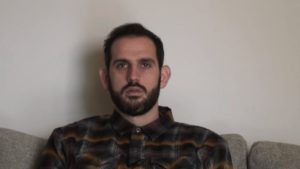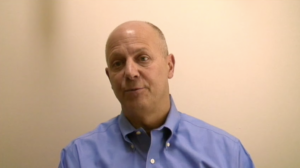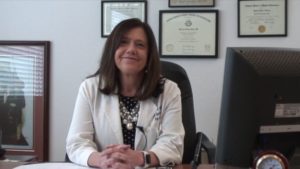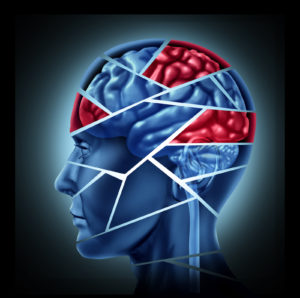What is Post-Concussion Syndrome?
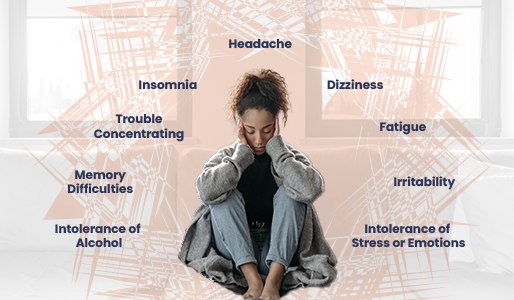
I recently talked with journalist Nathaniel Parish Flannery who writes about cycling. He was writing an article about pro cyclist Ian Boswell. Boswell had a crash in 2019 that resulted in long-term concussion symptoms. Flannery found our conversation and my book, Shaken Brain, very helpful, and he tells Boswell’s story in a Forbes article. I’m pleased that journalists like Flannery are sharing accurate and accessible information about concussions through the stories of real people who experience the consequences.
As an introduction to the topic, here’s some background:
Post-Concussion Syndrome and ICD-10
Post-concussion syndrome (PCS) consists of symptoms that may persist for weeks, months, or years after a concussion. Symptoms may be related to cognitive, behavioral, emotional, or physical health. In the 1990s, in the organization’s International Classification of Diseases (ICD), the World Health Organization (WHO), defined PCS as the presence of three or more of the following eight symptoms following a concussion:
- headache
- dizziness
- fatigue
- irritability
- insomnia
- concentration
- memory difficulty
- intolerance of stress, emotion, or alcohol
Two things distinguish post-concussion syndrome from a concussion (also referred to as a mild brain injury).
One is the time frame. The initial symptoms caused by a concussion typically appear soon after the trauma and resolve within about two to four weeks. PCS symptoms persist after the acute period and they may continue for months or even years.
The other difference is the intensity and progression of symptoms. While symptoms from the initial injury can get better over time, some PCS may instead worsen over time, especially without treatment.
The medical literature can be confusing. Some writers define PCS as symptoms continuing after one week, one month, or three months. Persistent PCS is generally defined as symptoms lasting more than either three or six months. For people with these symptoms, the time frames are less important than the fact that they are suffering and need expert care and treatment.
Post-Concussion Syndrome Recovery
Sports guidelines have stated in the past that most athletes recover from a concussion in seven to ten days. That statistic is based on an estimate from out-of-date studies. More recent studies of larger groups of more diverse patient populations show a less promising prognosis.
For example, a United States multicenter study found that 82% of subjects had at least one PCS symptom at six months and 12 months. Population studies from other countries also suggest that concussion carries a significant risk of developing chronic symptoms. One Canadian study documented that, on average, subjects had eight PCS symptoms that lasted seven months, and only 27% fully recovered. Two-thirds of patients who recovered did so in the first year, and no patients who had symptoms at three years recovered. A group of New Zealand researchers found that nearly half of subjects had four or more post-concussion symptoms at one year after the injury. Being female or from a non-white ethnic group, having had another brain injury or another co-morbidity, alcohol use, was associated with a poorer outcome. The levels of anxiety, depression, and reduced quality of life were comparable to the general population.
None of these population studies addresses the question of treatment. Clinicians know that proper diagnosis and treatment for symptoms can improve outcomes after concussion and PCS.
Risk Factors for PCS
There are some risk factors for the development of PCS. History of one of these disorders have been associated with increased risk of PCS and also need to be evaluated and treated:
- Migraines or other headaches
- Mental health disorders
- Learning disabilities or dyslexia
- Attention-deficit/hyperactivity disorder
- Sleep disorders
Two PCS Stories
Pro Cyclist Ian Boswell
Pro cyclist Ian Boswell’s story is consistent with a diagnosis of post-concussion syndrome. He reports continuing symptoms like difficulty thinking and focusing, even though he has improved over time.
Dr. Seth Fischer, a medical student
Seth Fischer, a medical student and concussion survivor who was the subject of two interviews I conducted a year apart, described firsthand how PCS affected his life. His symptoms – headaches, body aches, dizziness, blurred vision, and sensitivity to light, movement, and sound – lasted off and on for more than a year after the bike accident on the University of California Davis campus. Seth described how the chronic pain and depression he experienced fed into one another, making both worse. It was a tough time in his life, but he is in his residency now, training to become an anesthesiologist.
Seth’s and Ian’s stories are just two of many. For people with PCS, life can be an ongoing battle of chronic pain and other symptoms that are hard to treat, and every aspect of life can be affected.
Why Post-Concussion Syndrome Is Controversial
PCS is a controversial topic in medicine. While the data show that many people experience symptoms long after a concussion, PCS may vary significantly from patient to patient, which is not typical of a “syndrome.” Watch my video interviews with Seth Fischer and with three physiatrists (physical medicine and rehabilitation physicians) who talk about the range of treatments for post-concussion symptoms.
Treatment is not addressed in the recovery studies I mentioned earlier in this blog. Many people with concussion do not get comprehensive evaluation and treatment which, of course, can change outcomes.

You Might Also Like
A Medical Student and Cyclist Tells His Concussion Story
Seth Fischer tells the story of a bicycle-car crash that resulted in his having headaches and other chronic symptoms from what was labeled a mild brain injury or concussion. This is the first of two interviews. In a subsequent interview, Dr. Fischer talks about his recovery, his chronic symptoms, and…
A Follow-Up Interview with Dr. Seth Fischer
Dr. Seth Fischer talks about his concussion recovery, his chronic symptoms, and insurance and legal issues he has faced. This is the second of two interviews. In the previous interview, Dr. Fischer tells the story of a bicycle-car crash that resulted in his having headaches and other chronic symptoms from…
Managing Concussion-Related Pain
Dr. Steven Moskowitz is a physiatrist specializing in pain management. He discusses the various painful conditions, including neck pain and headaches, that occur at high frequency after concussion and related trauma. He advocates for a biopsychosocial approach to the evaluation and treatment of these conditions.
Workers with Concussions
Dr. Maureen Miner is a physiatrist and an expert in brain injury medicine. She discusses her approach to patients with concussion and more severe brain injuries who need specialty care and referral to other specialists for evaluation and treatment.
What’s It Like to Have a Brain Injury?
Stories of people who experience a traumatic brain injury can help to support and educate others. Seth had a protracted recovery, but ultimately a good one. (2 parts)
Treatment and Prognosis after a Concussion
Learn about treatments for post-concussion symptoms—including medication, various rehabilitation therapies, neuropsychology, and potentially some complementary therapies—as well as factors related to longer concussion recovery times.
Keep up to date
Get updates on the latest in concussion, brain health, and science-related tools from Dr. Elizabeth Sandel, M.D.
By clicking SIGN UP, you agree to receive emails from Dr. Sandel and agree to our terms of use and privacy policy.
Get the book!
